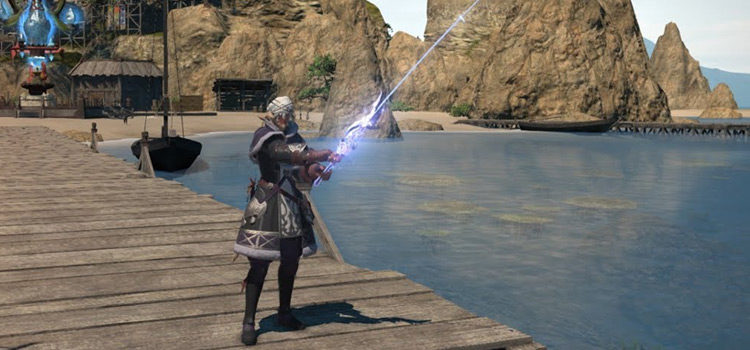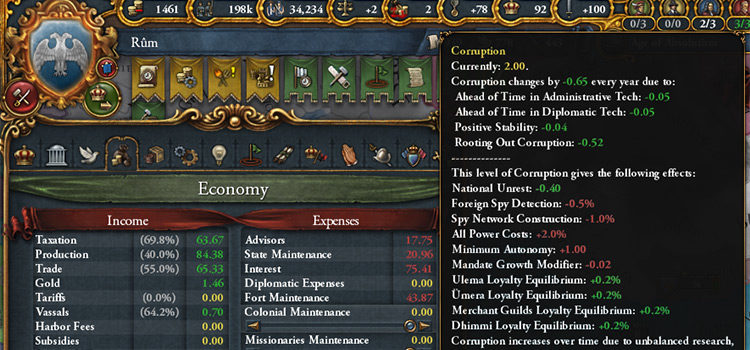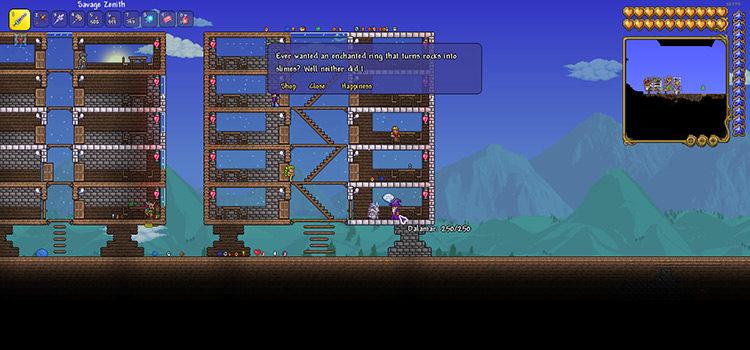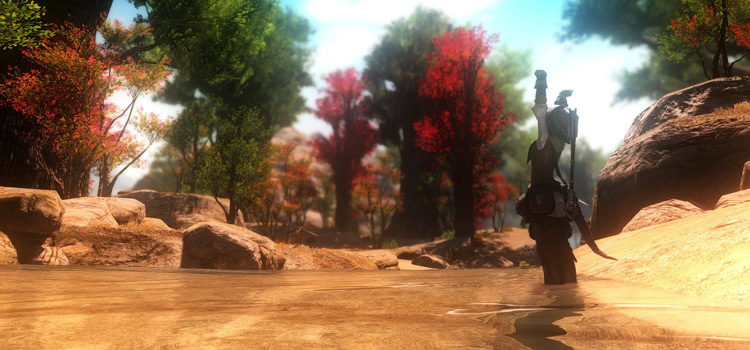How Does The Corruption Work in Terraria?
This post may contain affiliate links. If you buy something we may get a small commission at no extra cost to you. (Learn more).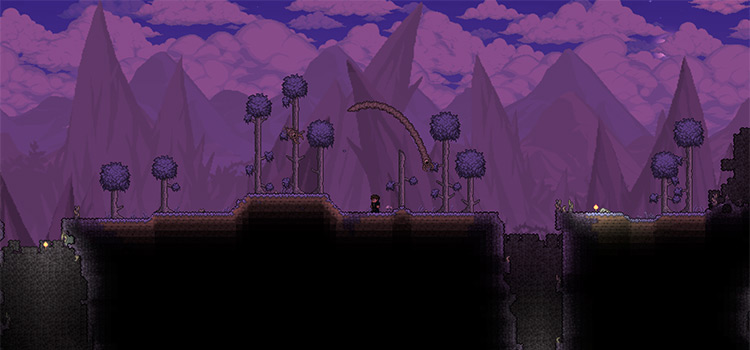
The Corruption is a biome in Terraria that begins to expand rapidly once you kill the Wall of Flesh and enter Hardmode.
Your world is generated with either the Corruption or the Crimson, not both. However, you can create an artificial Crimson biome with certain items.
There are some specifics when it comes to the spreading of the Corruption that might be confusing. We’ll cover all that and more – let’s dive in.
What is the Corruption?
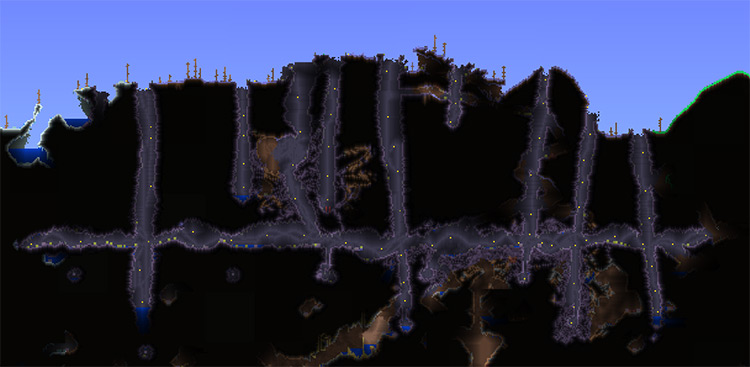
The Corruption is a necessary part of your progression, especially in pre-Hardmode.
It contains Shadow Orbs, Demon Altars, and the Eater of Worlds. All of these should be utilized to be as well-equipped as possible.
Shadow Orbs
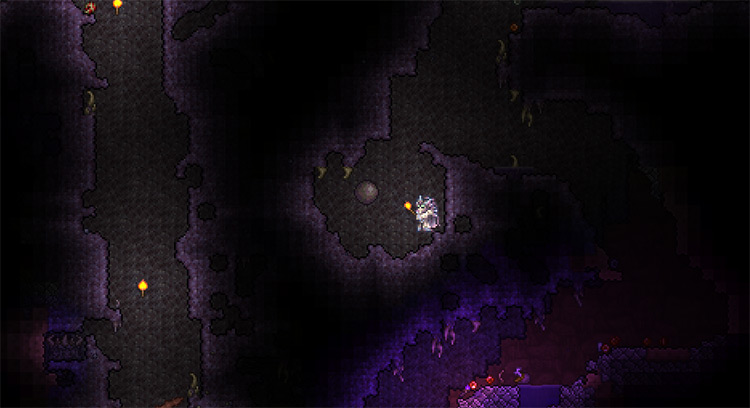
Within the chasms you’ll find Shadow Orbs. Breaking these Shadow Orbs is crucial, as they’ll allow specific events to occur:
- Destroying one Orb allows the Goblin Army to attack if its other criteria are met
- Every third Orb destroyed spawns the Eater of Worlds boss
- Each destroyed Orb after defeating the Eater of Worlds has a chance to make a meteorite land
Along with these events, Shadow Orbs are guaranteed to drop some of the following items:
- 100% chance to drop a Musket with first Orb destroyed
- 20% chance to drop 100 Musket Balls
- 20% chance to drop Shadow Orb
- 20% chance to drop Vilethorn
- 20% chance to drop Ball O’ Hurt
- 20% chance to drop Band of Starpower
Demon Altars
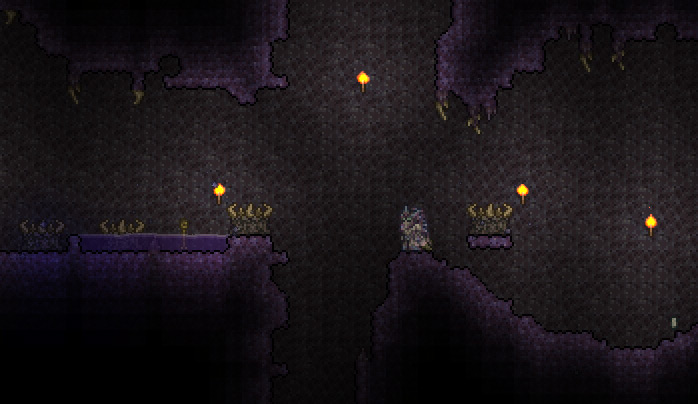
Demon Altars are crafting stations that allow you to craft some useful items. Most notably of these are the Night’s Edge, the Void Bag, the Void Vault, and the Suspicious Looking Eye.
Aside from this, Demon Altars can be broken in Hardmode with a hammer. Doing so will add a new type of ore to your world.
- The first broken altar will spawn Cobalt Ore or Palladium Ore
- The second broken altar will spawn Orichalcum Ore or Mythril Ore
- The third broken altar will spawn Titanium Ore or Adamantite Ore
Eater of Worlds
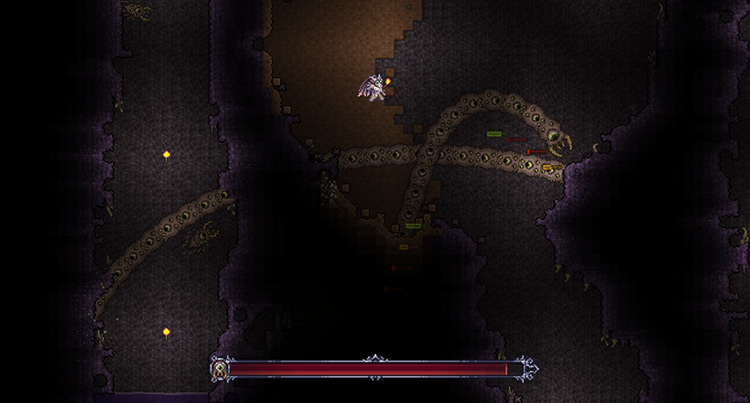
The Eater of Worlds is a pre-Hardmode boss spawned by destroying three Shadow Orbs.
Defeating this boss is the only way to get Shadow Scales, which is a crafting material for the Shadow armor set, the Obsidian armor set, and Demonite tools.
It’s also used for the Void Bag and Void Vault.
And it also drops large amounts of Demonite Ore, which only appears in small veins in the Corruption’s chasms.
This means that defeating the Eater of Worlds is the fastest way to farm Demonite Ore.
The Corruption vs The Crimson
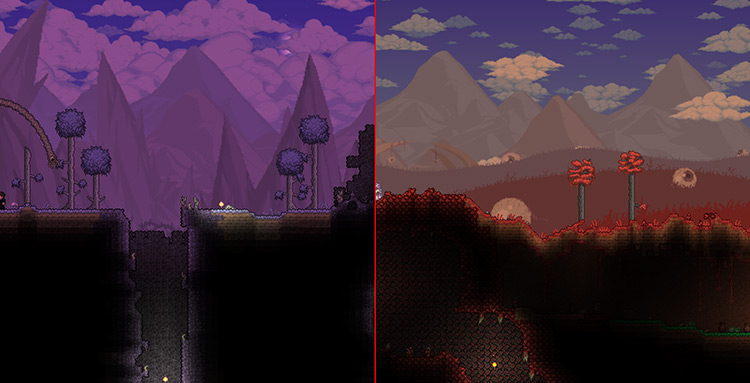
The Crimson is usually regarded as more difficult than the Corruption by players, but it also drops more powerful items.
Of course, the appearance is also vastly different.
The Corruption is a purple biome characterized by decay, while the Crimson is a red gory biome.
Instead of Shadow Orbs, there are Crimson Hearts, which drop different items than the Shadow Orbs. They still lead to the same effects when broken though.
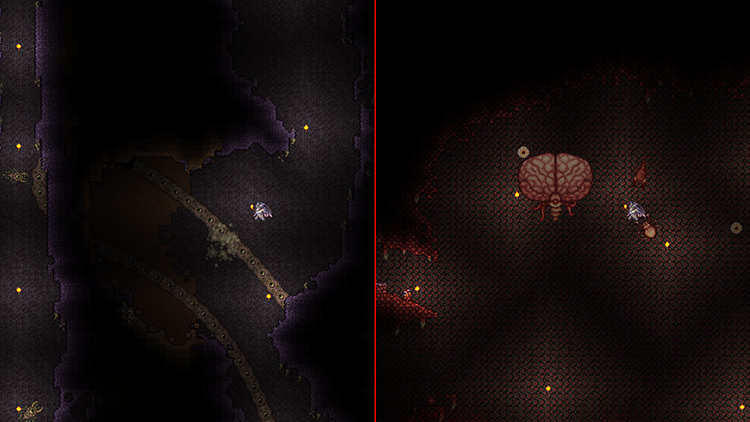
The most notable difference is the boss.
The Crimson is home to the Brain of Cthulhu instead of the Eater of Worlds. This boss drops Crimtane Ore rather than Demonite Ore.
Containing The Corruption
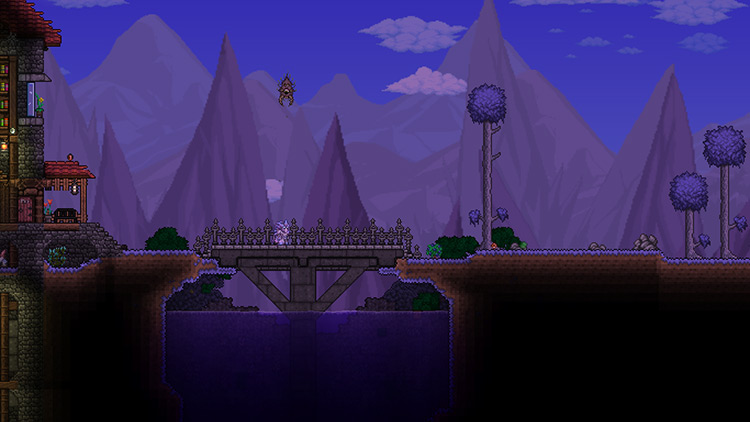
Most of the confusion when it comes to these biomes stems from the spreading mechanic. Killing the Wall of Flesh immediately throws you into Hardmode.
At this stage, if you had no prior knowledge, you may find that your world is slowly being taken over by the Corruption (and the Hallow).
While this is reversible, it’s still best to take defensive measures to protect your world.
Removing the Spread of Corruption
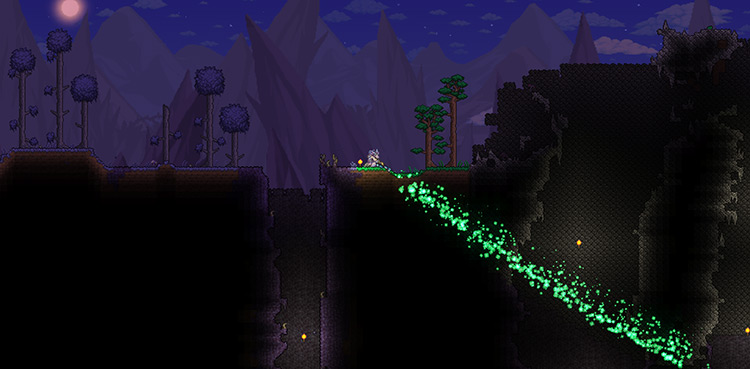
If you would like to return a biome to purity or convert the Corruption to purity, there are two ways to do so.
First Method: with Purification Powder, which converts corrupted blocks and grass into pure blocks when thrown. This can be obtained from the Dryad NPC for a cheap price.
Second Method: using the Clentaminator, a tool which can create biomes with ammo called Solution. These can be purchased from the Steampunker NPC for 2 Platinum coins.
Use the Clentaminator with Green Solution and spray it where you want to remove the Corruption.
Protecting Your World from Corruption
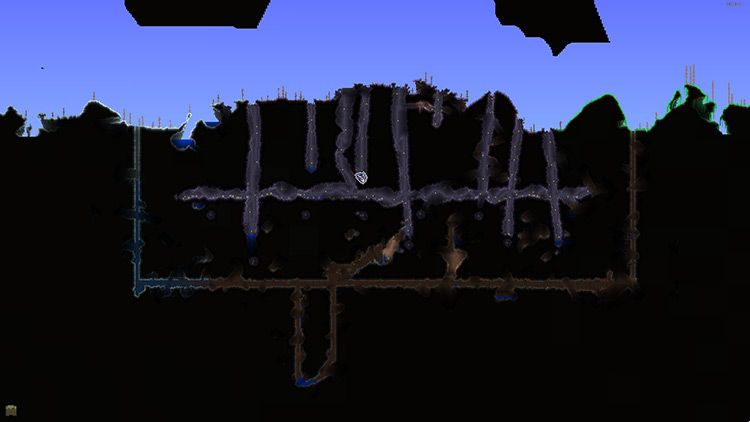
Your world can be protected from spreading by digging tunnels surrounding the areas you want to contain. You may also want to quarantine the Corruption to keep it from growing.
Corruption and Hallow blocks cannot spread past a 3 block gap, but vines allow it to spread past even bigger gaps.
For this reason, you’ll want to dig 4 block wide tunnels around the areas you wish to contain.
Tip: You can also line your tunnels with a non-corruptible block, such as stone. This further prevents spread.
You’ll also want to break any walls that are dirt or bush, because Corruption can spread through these as well.
